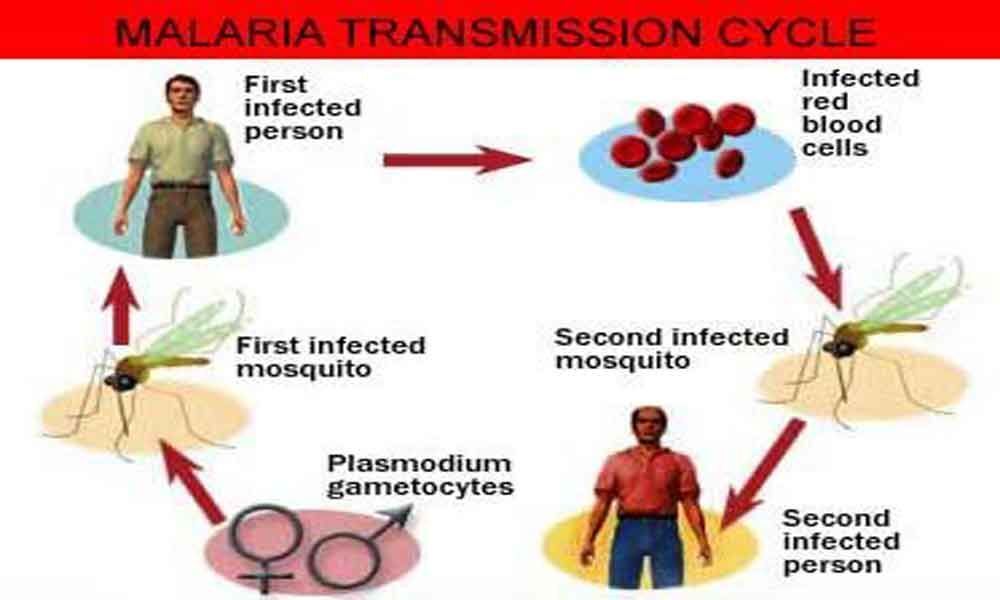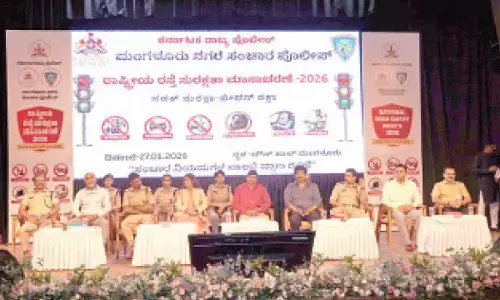Malaria prevention is better than cure
 Malaria prevention is better than cure
Malaria prevention is better than cureMalaria was a 'king of diseases,' during Vedic times around 3000 years ago. It may not be a 'king' anymore, but it's still a deadly killer, despite being both preventable and treatable today.
Malaria was a 'king of diseases,' during Vedic times around 3000 years ago. It may not be a 'king' anymore, but it's still a deadly killer, despite being both preventable and treatable today.
Every year 25th April is observed as World Malaria Day. 'Zero malaria starts with me,' is this year's World Malaria Day theme. According to World Health Oraganisation's latest report, no significant gains were made in reducing malaria cases in the period 2015 to 2017. The estimated number of malaria deaths in 2017, at 43,5000, remained virtually unchanged over the previous year.
The National Institute of Malaria Research states that for ecological reasons the insects which cause malaria cannot be eliminated and all one can do is protect oneself from these parasites.
Urgent action is needed to get the response to malaria back on track and ownership of the challenge lies in the hands of governments most affected by malaria.
In Hyderabad, lakes are rampantly polluted and transformed into breeding grounds for mosquitos, and the surroundings have become high-risk areas for dengue, malaria and chicken gunya.
According to the medical & health Department data, the number of dengue cases reported in Telangana in 2018 was the highest in the past seven years. In 2012, the number of dengue cases reported at 962, and it was 4,037 in 2016. In 2017, this number was 3,827 before increasing to an all-time high of 4,592 in 2018.
According to the data, no deaths of dengue patients were reported from 2012 to 2017. Only two deaths were reported in the year of 2018, both of which were at private hospitals in Hyderabad. In some districts, there was a sharp spike in numbers. In Adilabad, the number cases increased to 494 in 2018 from 17 cases in 2017. However, malaria cases reported from 11,880 cases in 2015 dropped to 1772 in 2018, showing a downward trend in the State.
Though there is declining trend, the incidence of malaria rising cases with Vivax and Falciparum, occurring due to a different parasite, were reported in the city in November 2018, resulting in patients with severe anaemia, development of bloods clots and impact on organs like liver and kidney aliments and multiple organ failure in the affected persons. While both Falciparum and Vivax malaria occur due to mosquito bites only.
As per National Vector Borne Disease Control Programme (NVBDCP) data, 1,475 cases of malaria were recorded in the state in 2018, of which 312 were of Vivax type.
However, the government took adequate measures such as distributing mosquito nets which helped in cutting down spread of the disease in districts but not in the city.
How Malaria is caused
- Malaria is caused by a parasite and transmitted to humans through the bite of the female Anopheles mosquito.
- The parasite attacks liver cells and red blood cells,
- A person affected by malaria may experience fever, head and body aches, and chills.
- Ones attacked the person could fall severely ill, or if treatment is not started in time, even die from it.
- Young children aged under 5 and pregnant women are main victims.
Preventive Measures
- Proper measures need to be taken to avoid being bitten, especially in areas where malaria is prevalent.
- Female Anopheles mosquitoes bite at twilight and at night (9 pm to 5 am). So, one has to take adequate precautions.
- Mosquitoes tend to hide in vacant spaces like below the bed, behind cupboards, in dark corners etc.
- Ensure that there are no mosquitoes in your room when you go to bed
- Fogging and use of insecticides can help control mosquito populations
- Mosquito breed in open, standing water, including clear water that's been left around for a few days
- Keep exposed water tanks, flowerpots and utensils covered, and drain stagnant water immediately
- Cover your windows with mosquito-blocking nets
- It's claimed that mosquitoes find light-colored clothes less attractive, so try to wear such colours
- Any exposed skin should be protected with insect-repellent cream
A net is highly effective; just ensure it doesn't have holes and is tucked in properly. Insecticide-treated nets are available for better protection. If your room isn't air-conditioned, keep the fan switched on. The circulating air seems to deter mosquitoes to an extent. Mosquitoes thrive in areas with stagnant water, stay away from stagnant water.
By Gudipati Rajendera Kumar
















